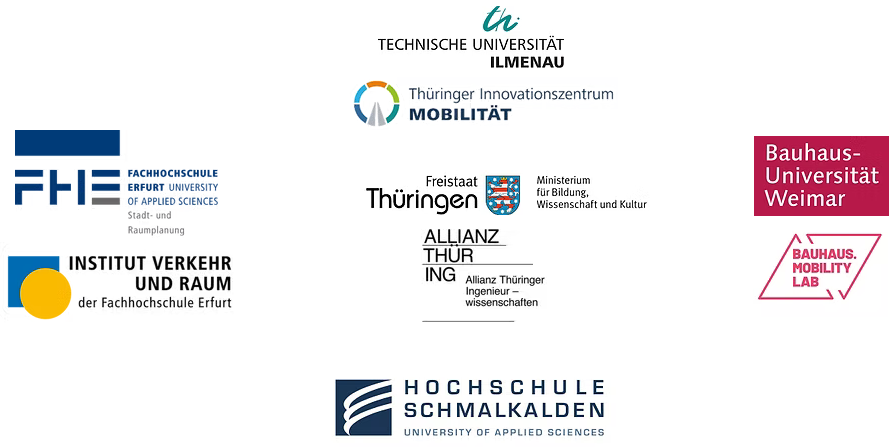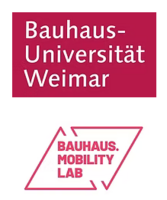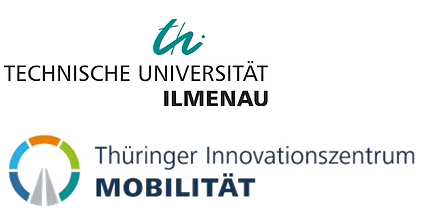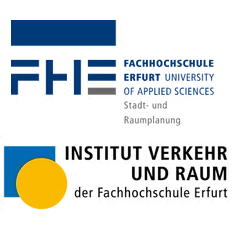
THÜR ING - Allianz Thüringer Ingenieurwissenschaften
There are seven universities in Thuringia that offer engineering courses, albeit in quite different forms. These include the University of Applied Sciences Erfurt, the Technical University of Ilmenau, the University of Applied Sciences Schmalkalden, the Bauhaus University Weimar, the Gera-Eisenach Cooperative State University, the Ernst Abbe University of Applied Sciences Jena, and the University of Applied Sciences Nordhausen. In 2019, these universities founded the Allianz Thüringer Ingenieurwissenschaften (Allianz THÜR ING) with the aim of establishing a forum for increased cooperation and joint strategy development. Structured and regular exchanges between university management on strategic developments in research, teaching, and marketing, as well as at the working level, give rise to collaborations that generate strong alliances in the field of research. These also include non-university partners such as research institutions and partners from industry.
Hochschule Schmalkalden
Prof. Dr.-Ing. Frank Schrödel -The Chair of Automation Technology and Robotics
Faculty of Mechanical Engineering
The Chair of Automation Technology and Robotics at Schmalkalden University of Applied Sciences focuses on the further development of autonomous driving and cooperation between humans and autonomous systems. The most important areas of research include the development of level 3/4 driving automation architectures (SAE J3016), intelligent perception, situation interpretation, human-centered decision-making, control of automated functions, cooperative route planning, and human acceptance of autonomous systems. The CoCoMobility project improves the safety and effectiveness of autonomous driving by integrating human factors, critical interaction parameters, and intelligent decision-making systems. By predicting intentions, recognizing and monitoring acceptance criteria in combination with perception and control systems, the project aims to improve human confidence, decision-making and efficiency, especially in interactions with pedestrians, which has been confirmed by laboratory and field tests.
Bauhaus-Universität Weimar
Univ.-Prof. Dr.-Ing. Uwe Plank-Wiedenbeck - Professorship for Transport System Planning
Faculty of Civil and Environmental Engineering
The Chair of Transportation Systems Planning at the Bauhaus-University Weimar conducts research on key topics in transportation and mobility sciences. Its main areas of focus are digitalization in transportation, transportation safety, transportation system modeling, mobility behavior, and the use of hydrogen and connected driving. A particular focus is placed on sustainable transportation infrastructure and the interdisciplinary development of innovative solutions for safe and sustainable mobility.
The CoCoMobility research project aims to improve traffic safety in intelligent transport systems (ITS). Using human factors methods, researchers analyze the interaction between humans and technology in order to reduce accidents and promote Vision Zero—a future without traffic fatalities. Measurement methods such as eye tracking, heart rate variability, and behavioral analysis are combined in laboratory experiments and field studies to design ITS systems that are human-centered and safer, especially for cyclists.
Jun.-Prof. Dr. Jan Ehlers - Head of the Usability Research Group
Faculty of Media
The Usability Research Group conducts psychophysiological research with a particular emphasis on practical and user-centered aspects. The focus is on integrating physiological data into the design of adaptive systems that recognize cognitive and affective states in various contexts. Eye movements, cardiovascular activity, thermoregulatory processes, and biomechanical reactions during cognitive and affective processing are analyzed.
In addition, the group investigates whether and under what conditions physiological activities can be actively influenced by complex cognitive processes. The conscious regulation of autonomous processes could not only promote mental health, but also offer new input channels in human-computer interaction and possibly challenge fundamental assumptions of affective computing.
Technische Universität Ilmenau
Univ.-Prof. Dr. rer. nat. habil. Matthias Hein - Head of Department of High Frequency and Microwave Technology
RF and Microwave Research Group, Department of Electrical Engineering and Information Technology
The RF and Microwave Research Group (HMT), under the supervision of Professor Dr. Matthias Hein, adds an important aspect to the CoCoMobility research group, namely the inclusion of VRU into the holistic traffic domain throug wireless connectivity. The HMT group, responsible for the core competence „Wireless and information technologies“ of the Thuringian Center of Innovation in Mobility (ThIMo), provides in-depth expertise in microwave techniques, antenna design, antenna and radar measurements, wave propagation, and unique wireless testing technologies. A major research focus lies on automated and connected driving on roads and rails.
One of the key assets of ThIMo is the „Virtual road - simulation and test area (VISTA)“, a unique research lab developed and coordinated by our team. It enables extended three-dimensional and antenna and bi-static radar reflectivity measurements as well as advanced over-the-air (OTA) and vehicle-in-the-loop (ViL) mthods for virtual verification and validation of connected and automated vehicle functions. It includes wireless transmission standards like mobile communications (V2X, 4G, 5G, 6G), satellite navigation, radar systems and broadcasting technologies while also addressing electromagnetic compatibility issues. As part of ThIMo, our group works in close collaboration with other research teams and industrial partners throughout Thuringia. These synergies enhance our ability to address complex challenges in current research with high societal relevance. More about ThIMo and us can be found on the mobilitaet-thueringen portal. By contributing to the CoCoMobility research group, HMT continues its mission to push the boundaries of RF and microwave technology, with the ultimate goal of enabling safer, smarter, and more connected mobility systems for vulnerable road users.
Fachhochschule Erfurt
Prof. Dr. Torsten Wißmann - Professorship for Digital City and Participation
Faculty Architecture and Urban Planning
Prof. Dr.-Ing. Carsten Kühnel - Professorhip of Intelligent Transport Systems
Faculty of Traffic and Transport
The project consortium consists of an interdisciplinary research group from the fields of urban and spatial planning and the Institute of Transport and Spatial Planning at the University of Applied Sciences Erfurt (FHE). The FHE is a practice-oriented university that facilitates cooperation with research institutions and companies at various levels. It is characterized by a broad range of subjects, which enables interdisciplinary project work. This is carried out in two main areas of research:
- Sustainable planning and construction, land use and resource management, and social transformation
- Sustainable mobility, logistics, and infrastructure.
The Institute for Transportation and Spatial Planning (IVR) has expertise in the fields of automation and traffic safety. Prof. Kühnel, member of the institute's management team and chair of Intelligent Transportation Systems, brings extensive experience to the table and has led numerous research projects in the field of connected and automated driving. Prof. Wißmann, Professor of Digital City and Participation since 2022, conducts research on digital urban development and social participation. He is a member of national and international expert groups and co-editor of the international, interdisciplinary series “Geographies of Media.”





